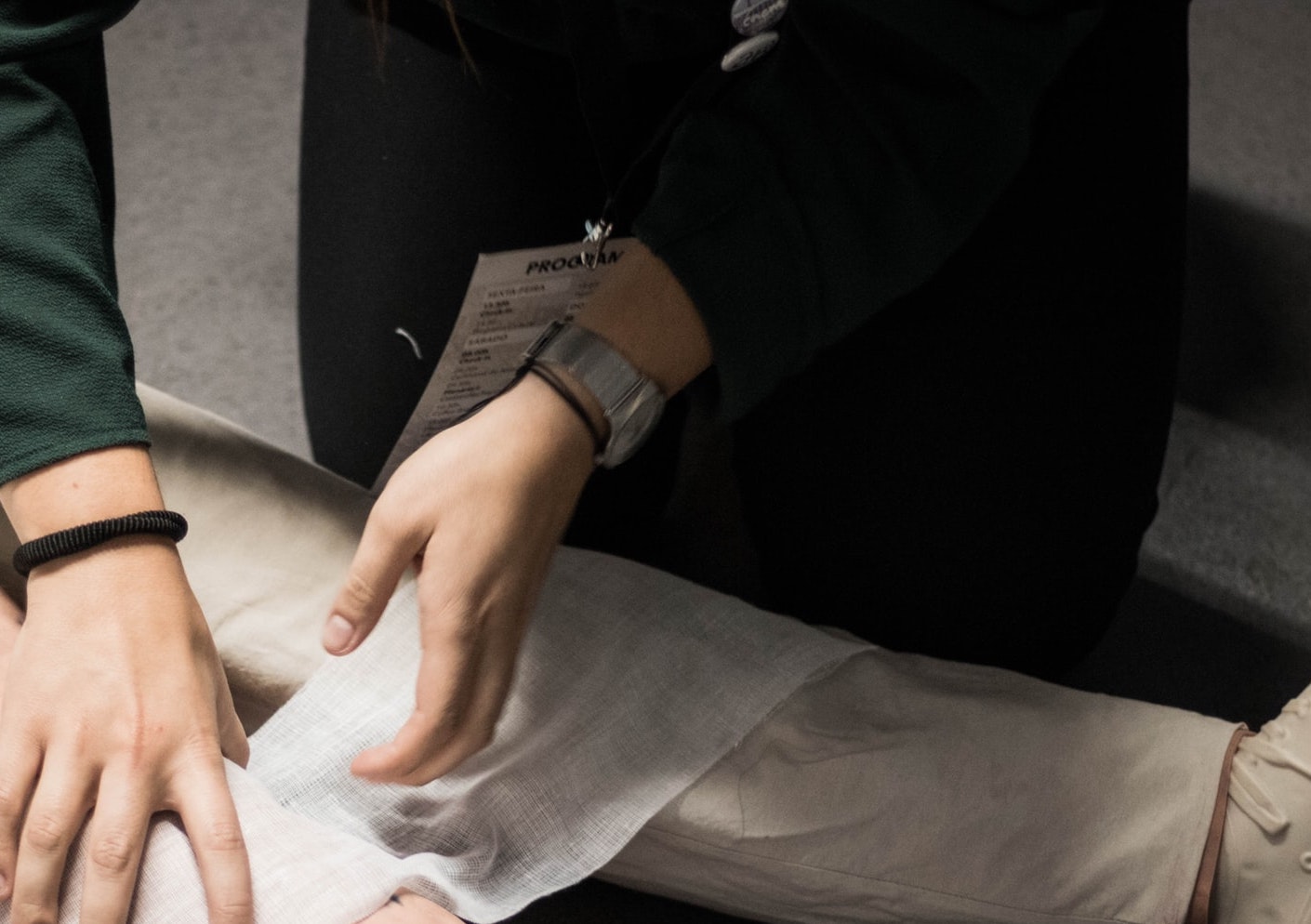 While not the most common type of personal injury dealt with at McKenzie & Snyder, serious dog bite injuries are surprisingly common. With an estimated three million dog bites between 2008 and 2013, man’s best friend may be a bit more dangerous than we would like to think.
While not the most common type of personal injury dealt with at McKenzie & Snyder, serious dog bite injuries are surprisingly common. With an estimated three million dog bites between 2008 and 2013, man’s best friend may be a bit more dangerous than we would like to think.
A dog bite could be nothing more than broken skin, but could also be as serious as leading to the loss of a limb or the transmission of a life-threatening disease. Fortunately, McKenzie & Snyder is here to help. Here are the five top things to remember if you or a loved one are bitten by a dog:
In the best-case scenario, a dog would never attack a person. In the second best-case scenario, the attacking dog could be subdued without hurting it. However, the law leaves room for a third and most probable situation. In order to protect yourself or your loved one, you are given the legal freedom to harm the dog if the situation requires.
This could include hitting or throwing something at the dog to get it away from yourself or the person it is attacking. You are allowed to do what needs to be done to protect yourself in the situation. After the dog is subdued or scared off, the next step is to…
 A dog bite is a serious injury. A dog bite could lead to infection, the transmission of diseases, loss of tissue, serious scars, or even loss of limb if left untreated. It is important to seek medical attention immediately after a dog bite.
A dog bite is a serious injury. A dog bite could lead to infection, the transmission of diseases, loss of tissue, serious scars, or even loss of limb if left untreated. It is important to seek medical attention immediately after a dog bite.
Immediate medical attention could include wrapping the wound to prevent bleeding, calling an ambulance, or driving an injured loved one to the emergency room. However serious the injury, medical attention should be sought immediately to make sure that no serious damage has occurred.
After your initial medical needs are met, the next step is reporting of the attack. Ohio law health care providers and veterinarians with knowledge of a dog bite to report it within twenty-four hours with the local health commissioner in the district where the dog bite happened.
Reporting is important. Not only is it legally required; it can become the first piece of evidence needed to begin building a legal case. Reporting also gives a licensed health official the ability to test the dog for certain diseases that could have been transmitted, such as rabies.
 After seeking immediate medical attention and reporting the attack within the first twenty-four hours, following up with your medical provider's recommendations is essential. While the first visit to a doctor may seem like the most important, continued medical treatment is imperative for getting back to 100%.
After seeking immediate medical attention and reporting the attack within the first twenty-four hours, following up with your medical provider's recommendations is essential. While the first visit to a doctor may seem like the most important, continued medical treatment is imperative for getting back to 100%.
Always listen to your doctor or certified medical provider. If a doctor has specific recommendations for how to further care for your dog bite injury or instructs that you schedule follow up appointments, it is important to follow those recommendations and instructions.
This could be as simple as scheduling a follow-up appointment at a later day or as serious as undergoing recommended surgery. As you continue to follow up with medical professionals and treat your injuries, the fifth and final step is to…
Once treatment has started and the attack has been reported, it is important to have trained professionals on YOUR side that know how to navigate the legal system and fight on your behalf. The attorneys at McKenzie & Snyder can help you navigate the process of getting compensation for your injury. No one wishes for a dog bite to happen. If one does, McKenzie & Snyder is here to fight for you.

Site Disclaimer - This site/article and any information contained herein are intended for informational purposes only and should not be construed as legal advice. Seek competent legal counsel for advice on any legal matter.
©2025 Mckenzie & Snyder LLP - All Rights Reserved | Privacy Policy